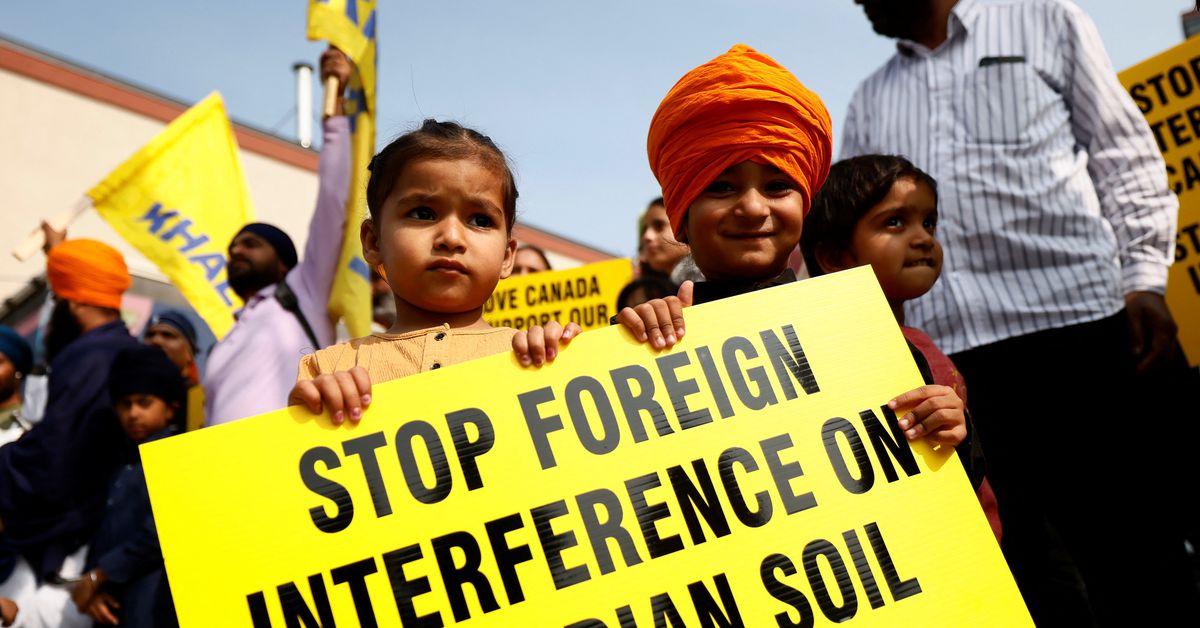- cross-posted to:
- worldnews@lemmy.ml
- news@lemmy.world
- cross-posted to:
- worldnews@lemmy.ml
- news@lemmy.world
India’s external intelligence service is a feared foe in its neighborhood: Pakistan, Sri Lanka and Nepal have all accused it of political meddling and involvement with outlawed groups that have perpetrated acts of violence.
Now, Canadian Prime Minister Justin Trudeau’s allegation last month that Indian government agents were involved in the June killing of Sikh separatist leader Hardeep Singh Nijjar in a Vancouver suburb has thrust Delhi’s secretive Research and Analysis Wing (RAW) into the global spotlight.
India angrily denied the allegations and demanded that Canada - which expelled RAW’s station chief - furnish evidence. Ottawa said it shared proof with allies, but will not release it publicly.
Reuters spoke to four retired and two serving Indian security and intelligence officials familiar with RAW who said the agency was galvanized to play a more assertive international role after the 2008 Mumbai attacks that left 166 people dead. The officials spoke on condition of anonymity to discuss sensitive matters.
Four officials said that RAW expanded its reach in Western nations gradually after 2008. One current official cited India’s failure to secure the extradition of a U.S. citizen convicted of involvement in the Mumbai attack as a key motivation for RAW to increase its sway in the West.
It’s sort of a “no shit” situation. Allies spy on each other all the time, it’s expected. And when one country’s spies get sloppy enough, there is a political kerfuffle, diplomats are expelled for a bit, politicians get to make speeches about hew they are “protecting the nation” and then everything goes back to normal. At some level, this is actually a good thing, as it keeps nations more honest with one another and allows nations to better understand each other’s aims and actions, reducing the likelihood of a misunderstanding leading to war.
And then one nation uses it’s intelligence services to murder someone. This is a much bigger problem. It puts the host nation in a bad political situation where it’s populous wants more than the usual political speeches. The populous wants accountability from the leaders of the attacking nation, which will never actually happen. So, the host nation’s government is stuck trying to “do something” while not actually doing anything. And, of course, the attacking nation’s government is stuck having to deny everything, no matter how obvious the link. For nations with a strong diplomatic bond, the most it does is generate negative news until the majority of the people forget the whole thing. For nations with a weaker political bond, it might result in some damage to trade. But in the end, most, if not all, of the fallout from this will just be strongly worded letters. All of which will be promptly filed under “trash” by the recipient nation. Nothing of substance will actually happen.
I’ve read this exact comment years ago on Reddit.
Probably right around the time Jamal Khashoggi was murdered at Mohammed bin Salman’s behest. The US Government publicly was “very concerned” about a US permanent resident being murdered. But ultimately, did fuck all to hold the Saudi dictator accountable.
Populace
This is the best summary I could come up with:
NEW DELHI, Oct 4 (Reuters) - India’s external intelligence service is a feared foe in its neighborhood: Pakistan, Sri Lanka and Nepal have all accused it of political meddling and involvement with outlawed groups that have perpetrated acts of violence.
Now, Canadian Prime Minister Justin Trudeau’s allegation last month that Indian government agents were involved in the June killing of Sikh separatist leader Hardeep Singh Nijjar in a Vancouver suburb has thrust Delhi’s secretive Research and Analysis Wing (RAW) into the global spotlight.
Reuters spoke to four retired and two serving Indian security and intelligence officials familiar with RAW who said the agency was galvanized to play a more assertive international role after the 2008 Mumbai attacks that left 166 people dead.
One current official cited India’s failure to secure the extradition of a U.S. citizen convicted of involvement in the Mumbai attack as a key motivation for RAW to increase its sway in the West.
The Canadian Broadcasting Corporation reported in 2020, citing government and intelligence sources, that the country’s security services were monitoring the possibility of India and China using their diaspora to influence candidates in that year’s federal election.
RAW was created under a government order with no formal parliamentary or constitutional backing and is exempt from legislative oversight, according to PRS, a research group that studies India’s federal and state legislatures.
The original article contains 1,280 words, the summary contains 225 words. Saved 82%. I’m a bot and I’m open source!
Not the bad mouth Canada, but Canada gets bullied by other countries all the time, it’s just India stepped up this time. What is Canada gonna do really? My bet is on Canada to be the one apologizing in the end.



